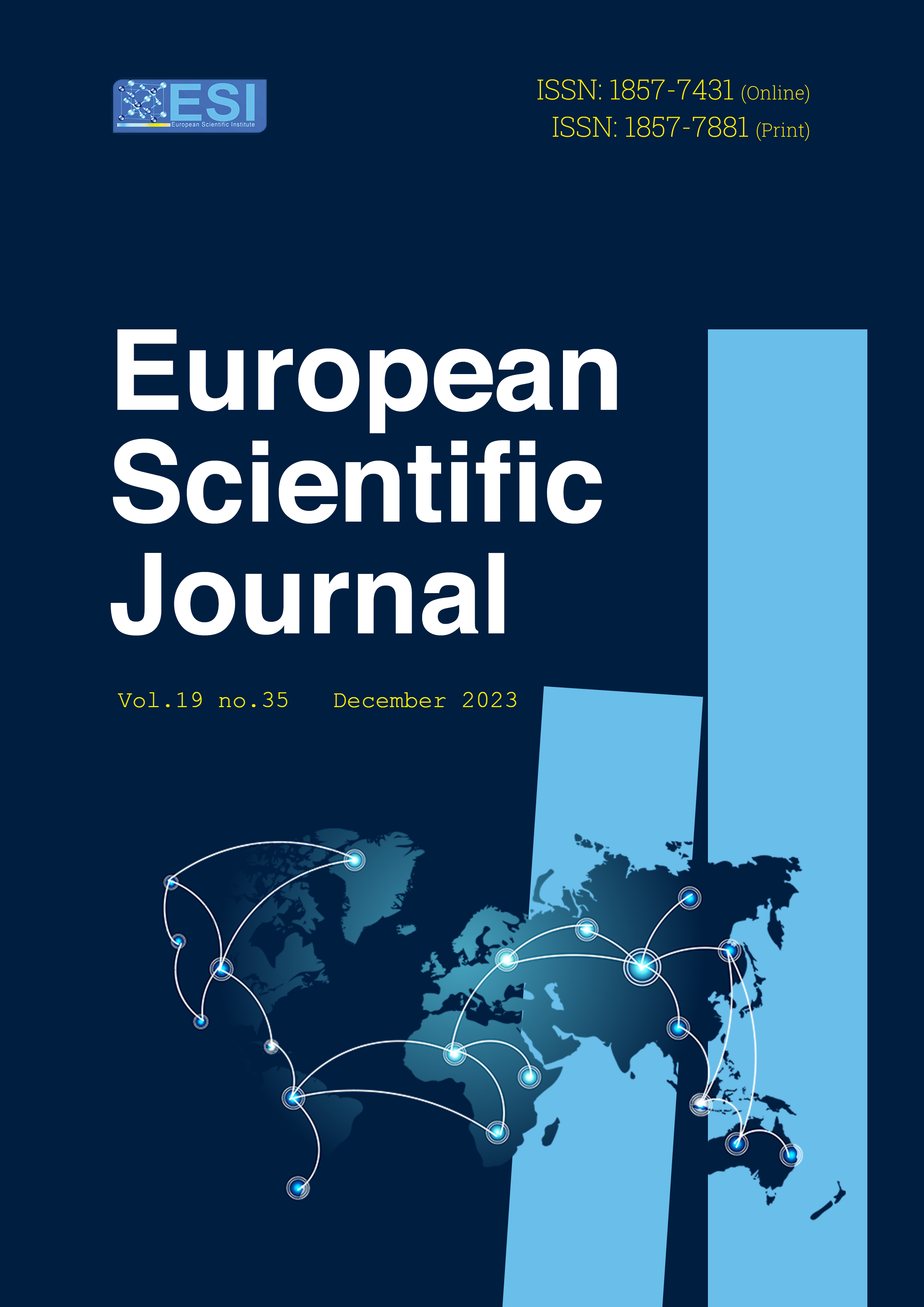Instrumentalismo Argumental y Conflicto Epistémico. Costos, Ganancias y Riesgos de las Discusiones Entre Intimos
Abstract
Este artículo se ocupa de reflexionar acerca de la argumentación como una práctica interaccional. Aborda, específicamente, la dinámica de las discusiones interpersonales, especialmente las que ocurren en el ámbito privado de la familia. El enfoque que se propone es desde la concepción del instrumentalismo argumental, tal como ha sido defendido por autores como Paglieri (2009), Paglieri & Castelfranchi (2010). La perspectiva instrumentalista se focaliza sobre la toma de decisiones estratégicas que los agentes naturales hacen para elegir implicarse o no implicarse en una discusión determinada. Esas decisiones se basan en tres criterios epistémicos y relacionales, a saber: cálculo de ganancias, de pérdidas y de riesgos. Esto significa que los sujetos que están en desacuerdo, y que son proclives a discutir, podrían decidir abstenerse si consideran que, al discutir, su desacuerdo pudiera agravarse. El artículo expone algunas de las formas más comunes en que el intercambio argumental puede empeorar o incluso arruinar un estado de conflicto original. El fracaso o riesgo potencial de una discusión no se basaría sólo en que no lograra conducir al consenso, sino también en que el vínculo mismo se viera severamente dañado a raíz de lo nociva que podría ser la argumentación a nivel afectivo-relacional. En consecuencia, las consideraciones de utilidad son relevantes al momento de elegir participar en una discusión. Si se acepta esta premisa, entonces cabe cuestionar la bandera del optimismo epistémico que insta a ver la argumentación como garantía de la solución de problemas e innegable generadora de ganancias epistémicas y relacionales (pero nunca de desventajas, pérdidas y nuevos desacuerdos).
This article reflects on argumentation as an interactional practice, specifically addressing the dynamics of interpersonal discussions, especially those occurring in the private realm of the family. The proposed approach is from the perspective of argumentative instrumentalism, as defended by authors such as Paglieri (2009) and Paglieri & Castelfranchi (2010). The instrumentalist perspective focuses on the strategic decision-making that natural agents undertake to choose whether or not to engage in a specific discussion. These decisions are based on three epistemic and relational criteria: calculation of gains, losses, and risks. This means that individuals in disagreement, prone to discussion, might decide to abstain if they believe that engaging in the discussion could exacerbate their disagreement. The article highlights some of the common ways in which argumentative exchange can worsen or even ruin an original state of conflict. The failure or potential risk of a discussion would not be based solely on its inability to lead to consensus but also on the fact that the relationship itself could be severely damaged due to how harmful the argumentation could be at an affective-relational level. Consequently, considerations of utility are relevant when choosing to participate in a discussion. If this premise is accepted, then there is room to question the flag of epistemic optimism that urges us to see argumentation as a guarantee for problem-solving and an undeniable generator of epistemic and relational gains (but never of disadvantages, losses, and new disagreements).
Downloads
PlumX Statistics
References
2. S. Benferhat and E. Giunchiglia, Toulouse: IRIT, 399–407.
3. Chistiansen, M. (2019). Violencia interpersonal y arrogancia neutralista. Un abordaje ético-epistemológico sobre la argumentación y la objetividad. Revista Internacional Interdisciplinar INTERthesis (Brasil), ISSN 1807-1384. V. 16, n.1, 2019 – Janeiro-Abril. Pp 91-107
4. 16(1), 91-107. doi:https://doi.org/10.5007/1807-1384.2019v16n1p91
5. Christiansen, M. (2020) Parasitismo argumental. El punto muerto de la deliberación. Oxímora. Revista internacional de ética y política. 16 (Enero-Junio 2020). Universidad de Barcelona. Pp. 50-62 doi:10.1344/oxi.2020.i16.29689 Disponible en: http://revistes.ub.edu/index.php/oximora/article/view/29689/30722
6. Christiansen, M. (2021). La ecología epistémica del desacuerdo profundo: un análisis reflexivo sobre la discusión interpersonal. Griot Revista De Filosofia, 21(2), 376-394. https://doi.org/10.31977/grirfi.v21i2.2323
7. Gilbert, M. A. (1997). Coalescent Argumentation. Mahwah, NJ: Lawrence Erlbaum Associates.
8. Gilbert , M. A. (2010). Argumentación multimodal. In F. Leal Carretero, C. González Ramirez, & V. Favila Vega (Eds.), Introducción a la argumentación (pp. 73-90). Guadalajara: Editorial Universitaria.
9. Goodwin, J. (2005). What does arguing look like?. Informal Logic 25, pp. 79-93.
Goodwin, J. (2007). Argument has no function. Informal Logic 27, pp. 69-90.
10. Hample, D. (2005). Arguing: Exchanging reasons face to face. Mahwah: Lawrence Erlbaum Associates.
11. Karunatillake, N., and Jennings, N. (2004). “Is it Worth Arguing?” in Argumentation in Multi-Agent Systems, eds. I. Rahwan, P. Moratis, and C. Reed, Berlin: Springer-Verlag, pp. 234–250.
12. Karunatillake, N., Jennings, N., Rahwan, I., and McBurney, P. (2009), “Dialogue Games that Agents Play within a Society”, Artificial Intelligence, 173, pp. 935–981.
13. Kauffeld, F. J. (1998). Presumptions and the distribution of argumentative burdens in acts of proposing and accusing. Argumentation 12, pp. 245-66.
14. Kauffeld, F.J. (2002). Pivotal issues and norms in rhetorical theories of argumentation. In: F. van Eemeren and P. Houtlosser (Eds.), Dialectic and rhetoric: The warp and woof of argumentation analysis (pp. 97-118), Dordrecht: Kluwer.
15. Manolescu, B. (2006). A normative pragmatic perspective on appealing to emotions in argumentation. Argumentation 20, pp. 327-343.
16. Mejía Saldarriaga, D. (2019). Robert J. Fogelin: La lógica de los desacuerdos profundos. Revista Iberoamericana de Argumentación. RIA 19 Pp. 84-99. https://doi.org/10.15366/ria2019.19
17. Paglieri, F. (2009). Ruinous Arguments: Escalation of disagreement and the dangers of arguing ( June 3, 2009). OSSA Conference Archive. Paper 121.
http://scholar.uwindsor.ca/ossaarchive/OSSA8/papersandcommentaries/121
18. Paglieri, F. & Castelfranchi, C. (2010) Why argue? Towards a cost–benefit analysis of argumentation, Argument and Computation, 1:1, 71-91, DOI: 10.1080/19462160903494584
19. Popper, K. (1985). La lógica de la investigación científica (7a. ed.). Madrid: TECNOS.
20. Tannen, D. (1998). The Argument Culture. New York: Random House.
21. van Eemeren, F., and Grootendorst, R. (2004), A Systematic Theory of Argumentation: The Pragma- dialectical Approach, Cambridge: Cambridge University Press.
Copyright (c) 2023 María L. Christiansen

This work is licensed under a Creative Commons Attribution 4.0 International License.








